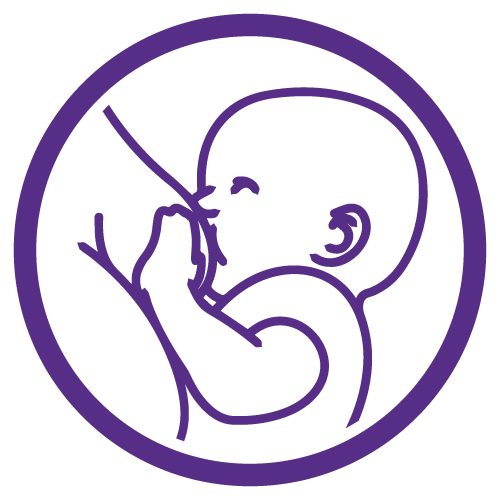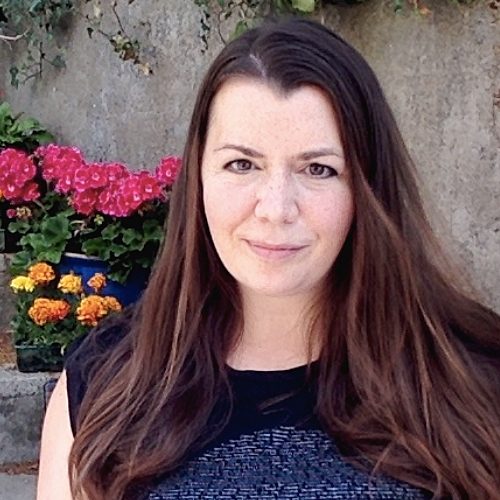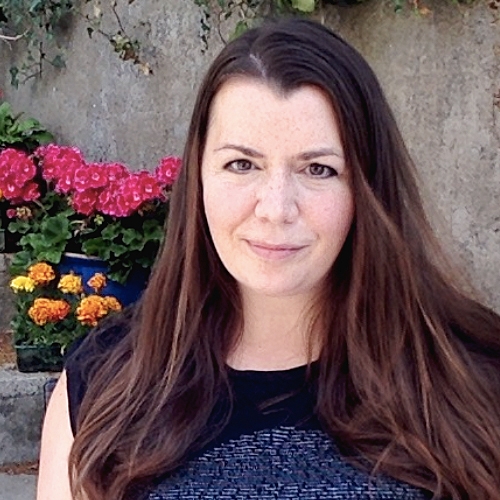 Lactation & Breastfeeding Online Course(s) & Continuing Education
Lactation & Breastfeeding Online Course(s) & Continuing Education
Access the latest clinical skills and research for Lactation & Breastfeeding for professional training. These Lactation & Breastfeeding online courses provide practice-changing skills and valuable perspectives from leading global experts. This Lactation & Breastfeeding education has been accredited for a variety of CEUs / CERPs and can be accessed on-demand, at your own pace.

Vestibular Processing: Using the Sixth Sense to Support Lactation and Parent/Infant Relationships

Gretchen Becker Crabb is an Occupational Therapist, Licensed Professional Counselor, and Endorsed Infant Mental Health Therapist. She is also a Certified Lactation Counselor, La Leche League Leader, and Brazleton Newborn Observation (NBO) trainer.
Gretchen’s passion is rooted in fostering lifelong relationships and connection through co-regulation in pregnancy and beyond. Her unique approach to lactation support and therapy is rooted in culturally attuned sensory, somatic, and trauma-informed mental health techniques.
Gretchen owns and operates a private practice in Madison, Wisconsin. For 21 years, she has provided developmental, trauma, feeding, and attachment support for tiny humans and their caregivers in birth to three, preschool, private practice, and peer group settings. Gretchen is an international speaker, reflective supervisor, and infant mental health consultant. In these roles, she offers compassionate, experiential, and reflective holding spaces for professionals. She is a proud United States Air Force spouse and mother of three boys.
Topic: Infant Mental Health: What Does It Look Like in Practice? - [View Abstract]
Topic: Scent-Sational Connections: The Role of Olfaction in Development - [View Abstract]
Topic: Sensory Processing and Breast/Bodyfeeding: Using Co-Regulation to Support the Feeding Relationship - [View Abstract]
Topic: Vestibular Processing: Using the Sixth Sense to Support Lactation and Parent/Infant Relationships - [View Abstract]
The body’s ability to process sensory information provides the basis of all function. Interestingly, our most foundational sense of movement is often overlooked as a component of lactation support. In this presentation, we will tie together research in neurology, primitive reflexes, mental health, and sensory integration to demonstrate the significant impact vestibular function has on the quality of lactation and infant/caregiver relationships. Participants will enhance their observational skills and explore ways to provide support for body/breastfeeding dyads using a vestibular processing perspective. Experiential activities will offer participants the opportunity to play with movement and reflect on personal experiences to enhance self-awareness and compassionate care.

View Details / Enroll

Virus Killing by White Blood Cells in Breast Milk: How Breastfeeding Is Protective Against HIV

Rebecca LR Powell, PhD, CLC is an Assistant Professor in the department of Medicine, Division of Infectious Diseases, at the Icahn School of Medicine at Mount Sinai Hospital. Currently Dr. Powell is analyzing the phagocytosis responses of various cell types to better understand the effects of phagocytosis receptor profiles and the impact of antibody specificity on the elicitation of biologic function. Additionally, Dr. Powell is studying the contribution of breast milk leukocytes to the relatively low rate of HIV transmission in infants exclusively breastfed by their HIV-infected mothers. She received her PhD in Microbiology from the Sackler Institute, New York University School of Medicine, and her CLC from the Healthy Children Project.
Unless access to clean water and appropriate infant formula is reliable, the World Health Organization does not recommend HIV-infected mothers stop breastfeeding. Remarkably, only about 15% of babies exclusively breastfed by their HIV-infected mothers become infected with HIV. This suggests that although breast milk is a vehicle for HIV transmission, the milk itself exhibits a strong protective effect against infection. Breastfed babies ingest 100,000 - 100,000,000 maternal cells every day via breast milk; what remains largely unclear is the contribution of these cells to the milk’s anti-viral qualities. A large study has been undertaken to isolate cells from human milk in order to measure the ability of these cells to engulf and destroy HIV by a mechanism known as phagocytosis. Over 50 samples of breast milk obtained from healthy women have been analyzed. Phagocytosis of HIV was detected in all samples. Activity did not appear to correlate with stage of lactation. Various cell types known for phagocytic capacity were identified and measured, including granulocytes, monocytes, macrophages, and dendritic cells. All samples exhibited strong granulocyte activity.These data further demonstrate that phagocytosis of HIV by immune cells from breast milk can be measured. This information will be critical for design of therapeutic vaccines capable of reducing the likelihood of mother-to-child transmission of HIV in areas where breastfeeding is essential.

View Details / Enroll

View Details / Enroll

Watching Our Words: Is Risk-Based Language Always the Right Choice?

Michelle Pensa Branco MPH IBCLC is a lactation consultant and public health advocate. In addition to her clinical practice, which has included in-hospital, outpatient and private practice settings, she advocates for improved maternal-child health practices at the local, national and global level. She has a particular interest in the impact of trauma to breastfeeding families, models of peer support to improve breastfeeding outcomes and the application of health communication principles to the promotion and protection of breastfeeding. Michelle serves as the Director of Peer Support Programs and provides clinical lactation expertise for Nurture Project International, the only international NGO focused exclusively on infant feeding in emergencies. With Jodine Chase, she co-founded a Canadian non-profit organization, SafelyFed Canada. She is also an active member of the Ontario Public Health Association’s Breastfeeding Promotion Working Group. Michelle has previously served as the Vice-Chair of La Leche League Canada, the Communications Director for the Canadian Lactation Consultants Association as well as the Toronto Coordinator of INFACT Canada. When she is not travelling for work, Michelle stays close to home, living with her family just outside Toronto, Ontario, Canada.
Topic: Keeping the Fox Out of the Chicken Coop: Safeguarding Your Reputation Against Baby Feeding Industry Influence - [View Abstract]
Topic: Playing Well with Others: Collaborating in High Conflict/Low Trust Settings - [View Abstract]
Topic: Watching Our Words: Is Risk-Based Language Always the Right Choice? - [View Abstract]
Within the lactation world, it is widely accepted that optimizing infant feeding practices and normalize breastfeeding, we must frame breastfeeding as the physiological norm and not breastfeeding as the risk behaviour. For example, breastfeeding does not reduce the risk of type II diabetes, but rather not breastfeeding increases the risk of type II diabetes. Most of us have had this framing drilled into us during our training and can deftly turn around any headline to reflect the correct wording.
It is, indeed, scientifically correct that breastfeeding is the physiological norm for human: artificial feeding is no more “normal” for the human baby than using a wheelchair to be mobile. However, health communication is about more than delivering scientifically accurate facts to the target population. In motivating parents to initiate breastfeeding and then maintain exclusive breastfeeding for 6 months and alongside complementary foods for at least 2 years and beyond, the science of health behaviour is often overlooked.
In this session, we will discuss some of the major models of health behaviour change and how risk is perceived and acted up on within these models, drawing from both maternal-child health and other public health. We will review the rationale for using risk-based language as well as the evidence for different perspectives, including the use of social marketing strategies.

View Details / Enroll


Zoe undertakes a diverse range of roles in the field of lactation and infant and young child feeding, including holding national and international leadership roles. Zoe works in the community public health service, in Brighton UK, delivering specialist services for family with complex and persistent feeding challenges as well as supporting the implementation of Baby Friendly Standards. Previously she run the in house breastfeeding peer support program for 15 years. Zoe teaches, colleagues, student public health nurses at Brighton University and presents infant feeding topics to a broad range of audiences. Zoe is Chair of Lactation Consultants of Great Britain and in July 2022 was appointed as to the International Lactation Associations Board. Zoe is also currently Charing an expert working group, on behalf of the emerging Breastfeeding Alliance writing and mapping breastfeeding competencies of the infant feeding support workforce to increase the understanding of the unique characteristics and shared skills and knowledge of those working to support breastfeeding families. Zoe enjoys working directly with families and babies to enable mothers and parents to meet their babies and young child’s needs and achieve their desired goals throughout their breastfeeding and infant feeding journey, and weaning experience.
Skilled support for weaning from the breast is often overlooked. Most policies and programs focus on initiation of breastfeeding, the continuation of lactation and support for overcoming challenges. In practice it can be harder for families to find information, support, and guidance to wean, whatever stage of their breastfeeding journey. Often it is perceived that support for breastfeeding is all about continuing. Like breastfeeding, weaning has socio-cultural, biological, immunological, physiological and anthropological considerations, and affects the physical and mental health of both mother and child. This talk will explore the many considerations, and complex interplay between multiple factors, that the infant feeding support workforce need to understand to meet the support needs of families. We will explore: the child’s developmental readiness, emotional, immunological, and nutritional needs, and what the milk and relationship mean to them. We will also look at the impact on the mother: what we know about how the pace of weaning may impact the lactating parent’s breast health and wellbeing and how to meet the evolving needs of their baby. And finally, we look at the dyad collectively. Supporting a positive ending to breastfeeding is an essential part of the skills and knowledge of lactation professionals.

View Details / Enroll

Weaning: Supporting Families Stopping Lactation and/or Ending Their Breastfeeding/Chestfeeding Relationship

Joy MacTavish, MA, IBCLC, RLC is an International Board Certified Lactation Consultant and certified Holistic Sleep Coach focusing on the intersections of infant feeding, sleep, and family well-being. Through her business, Sound Beginnings, she provides compassionate and evidence-based support to families in the greater Seattle area, and virtually everywhere else. She entered the perinatal field in 2007 as birth and postpartum doula, and childbirth and parenting educator. Joy holds a Master of Arts in Cultural Studies, graduate certificate in Gender, Women and Sexuality Studies, and two Bachelors degrees from the University of Washington. She enjoys combining her academic background, analytical skills, and passion for social justice into her personal and professional endeavors. Joy serves as an Advisory Committee Member and guest speaker for the GOLD Lactation Academy. When not working or learning, she can be found homeschooling, building LEGO with her children, or dreaming up her next big adventure.
Topic: Full-Term Breastfeeding/Chestfeeding: Benefits, Considerations, and Ways to Offer Support - [View Abstract]
Topic: Mindful Breastfeeding: How Lactation Professionals Can Support Calm and Connection - [View Abstract]
Topic: Sending Reports: What’s in it for IBCLCs? - [View Abstract]
Topic: Supporting Clients Facing Fertility Treatment - [View Abstract]
Topic: The Intersection Between Lactation, Sleep, and Family Well-Being - [View Abstract]
Topic: Weaning: Supporting Families Stopping Lactation and/or Ending Their Breastfeeding/Chestfeeding Relationship - [View Abstract]
While lactation support spans the time from the prenatal period through weaning, there is less available information about the process of weaning. We know that there are a variety of reasons why families need or desire to stop lactation. We also know that there are emotions and logistics involved in ending a breastfeeding/chestfeeding relationship. Depending on the goals, timeline, and individual context of each dyad there are a variety of factors that need to be considered by the family. Unfortunately, these families often feel that the clinical information and emotional support available for weaning is lacking.
Evidence-based support presented in a compassionate manner can make a world of difference to the individual's decision-making process and overall weaning experience. For lactation supporters and professionals, being able to support families who are stopping lactation and/or ending their breastfeeding/chestfeeding relationship is a vital skill. This presentation will offer research-based information about the reasons for weaning, steps lactation supporters and professionals can take when working with families, and scripts for compassionate phrasing while offering this important information and support.

View Details / Enroll

View Details / Enroll

What a Letdown: Exploring the Physiology of the Milk Ejection Reflex

Briana Tillman received her undergraduate degree in International Relations from the United States Military Academy at West Point. She has been a La Leche League Leader for 9 years and is a board certified lactation consultant. After spending 10 years as a stay-at-home mom, she is currently in her third year of medical school at Rocky Vista University College of Osteopathic Medicine in Parker, Colorado. She loves spending time with her husband and three kids—as a family they like to travel, go camping, and play string instruments in “family ensemble.”
Nick is a 3rd year medical student at Rocky Vista University College of Osteopathic Medicine. He has a background in mechanical and systems engineering but found his calling in medicine after volunteering for Health4Haiti in 2011. He lives in Colorado with his wife and they enjoy hiking, camping and fishing in the great outdoors.
Topic: What a Letdown: Exploring the Physiology of the Milk Ejection Reflex - [View Abstract]
New mothers experience the milk ejection reflex, or “letdown,” in various ways. While some feel no physical symptoms, others experience a tingling sensation and some even have significant pain or sadness. Babies also have different experiences, from the overactive “drink from the firehose” to frustratingly long waiting at feeding time. This presentation explores the multitude of influences on letdown, from internal hormones and chemical signaling pathways to the research related to such external influences as diet, alcohol, stress, and the use of synthetic oxytocin.
Many moms believe that they either do not produce sufficient milk or need a quicker, more effective letdown. Suggestions to deal with these issues range from drinking beer to adding different nutritional supplements to the diet, from hypnosis to oxytocin nasal spray. We will explore the research and unravel the best practices and recommendations we can give to clients related to their concerns about the milk ejection reflex.

View Details / Enroll

View Details / Enroll


Professor Amy Brown is based in the Department of Public Health, Policy and Social Sciences at Swansea University in the UK. With a background in psychology, she has spent the last thirteen years exploring psychological, cultural and societal influences upon infant feeding decisions in the first year. Her research seeks to understand how we can shift our perception of how babies are fed away from an individual mothering issue to a wider public health problem – with societal level solutions. Dr Brown has published over 60 papers exploring the barriers women face in feeding their baby during the first year. She is a mother to three human children and three book babies: Breastfeeding Uncovered: Who really decides how we feed our babies, Why starting solids matters, and The Positive Breastfeeding Book: Everything you need to feed your baby with confidence. She is a regular blogger, aiming to change the way we think about breastfeeding, mothering and caring for our babies.
Topic: Breastfeeding Trauma: How Can We Recognise and Support Mothers Who Wanted to Breastfeed but Were Unable to Meet Their Goals? - [View Abstract]
Topic: How Can We Better Support Mothers Don’t Meet Their Breastfeeding Goals? - [View Abstract]
Topic: What Do Normal Infant Feeding Patterns Really Look Like? - [View Abstract]
We know that responsive feeding gets breastfeeding off to the best start. New parents are told that breastfed babies often feed 8 – 12 times a day, but in practice many new mothers will find themselves breastfeeding more frequently than this. Research exploring breastfeeding frequency is however conducted primarily with younger infants, focuses simply on breast versus bottle, or was funded by industry.
This presentation reports novel findings from a research study of 18,000+ mothers with a baby or child aged 0 – 5 years old. It examines how often babies feed during the day and night for each age range by milk feeding type, mode, and approach (e.g. schedule versus responsive) and how frequent day and night feedings remain the norm for breastfed babies into the preschool years. The data also explores differences in maternal perceptions of infant variations in hunger e.g. in response to growth spurts, variations over different days, and cluster feeding, highlighting how breastfeeding mothers describe a more varied pattern of infant feeding compared to those formula feeding.
Together the findings challenge notions that most babies breastfeed between 8 – 12 times per 24 hour and that irregular patterns or varied numbers of feeds are normal for breastfed infants. Although many breastfeeding practitioners will recognise this pattern, these findings will provide both an addition and challenge to the scarce existing research literature on infant feeding patterns.

View Details / Enroll


Carol Smyth is an IBCLC and Cognitive Behavioural Psychotherapist working in both Primary Care and in private practice in Northern Ireland. With a background in psychology she is driven by a passion to promote attachment based and trauma informed care to families and babies. She is the author of the Why Infant Reflux Matters book, both an HCP education resource and a self-help book for families worried about their baby’s reflux and unsettled behaviours. When working with parents she aims to increase understanding of normal (often misunderstood) baby behaviours and to explain why these are often different from what we expect. This understanding helps to lower parental anxiety and promotes attachment strategies proven to reduce crying.
Topic: What Does Breastfeeding Mean for Fertility? - [View Abstract]
The impact of breastfeeding on fertility has been neglected by research in recent years. There can be significant variation in when the menstrual cycle returns for parents, which can impact their plans for family expansion. Some who conceived easily before breastfeeding, can find it much more difficult to conceive while breastfeeding. Some who struggle with recurrent miscarriage can wonder if breastfeeding is impacting their ability to carry to term. Many are left wondering whether to wean their nursling in order to conceive again, which can be a very difficult decision to make, when that conception is uncertain. This presentation will review the research on how breastfeeding affects the menstrual cycle, how fertility is initially suppressed and how it returns, the ongoing effect that breastfeeding can have on fertility, how to use breastfeeding as a contraceptive method (if desired), how to maximise chances of conception (if desired) and whether it may affect a pregnancy after conception has occurred.

What Role Do Fathers’ Cultural Experiences Play in the Decision to Support Breastfeeding?

Muswamba Mwamba is a father of five breastfed children. An International Board-Certified Lactation Consultant, a public health practitioner, and a scholar; his research interests focus on immigrant health within the minority group in the context of the US health disparity. Muswamba helps mothers and babies obtain the best health outcomes by teaching and inspiring their partner/ father to fight to remove barriers that prevent successful breastfeeding. As a professor at the University of North Texas at Dallas, Muswamba disseminates clinical and non-clinical information to inform graduate students of significant developments and trends in the field of infant feeding.
Muswamba is a lifelong learner. He trained in Belgium, where he earned a bachelor's degree in agricultural engineering, a master's degree in human nutrition biochemistry, and a second master's degree in food science and technology. Witnessing striking disparity in his maternal and child health practice, he deepened his understanding of public health's complexity in the US and elsewhere. He earned a master's degree in Public Health at the University of North Texas and a doctoral degree in Public Health Executive Leadership from the University of North Carolina at Chapel Hill.
Male breastfeeding support is evidenced to influence breastfeeding behaviors. Fathers play a vital role in determining women's choice to breastfeed. Many studies regarding fathers' breastfeeding influence included participants from a variety of ethnic backgrounds. Only a few studies examined African American men's breastfeeding attitudes. Within the U.S. disparity context, Black African immigrant breastfeeding experiences have not been measured.
The social and cultural breastfeeding experiences of Congolese Immigrants compared to those of African Americans were explored, analyzed, and contrasted. In the immigrant study, the breastfeeding cultural practice's visibility enables the breastfeeding perceptions of Congolese fathers. They identify their Congolese origin as a warrant for breastfeeding decisions and practice. Breastfeeding is a natural process that does not require prior deliberations between expectant couples. Breastmilk is valued for its God-given virtues rather than its medical benefits.
In the cultural context of African American, family, and friends enable breastfeeding support perceptions. Personal experiences and knowledge of breastfeeding benefits are predictors of breastfeeding decisions. However, there is not a cultural, existential framework supporting breastfeeding.
This study's findings and recommendations guided the development of a dynamic African American men breastfeeding support toolkit designed to utilize existing public health structures.

View Details / Enroll

View Details / Enroll

What to Do When the Laid-Back Breastfeeding Position Doesn’t Work…Self Attachment, the Flipple Technique and the Koala Hold All With a “Hands Off” Approach

Meg is the mother of three breastfed boys and lives with her husband and children in QLD, Australia. She is an International Board Certified Lactation Consultant (IBCLC) in private practice and works with parents to help them reach their breastfeeding goals. She has a degree in psychology and her prior work was is in counselling and sexual health. She was a La Leche League Leader (breastfeeding counsellor) for seven years before becoming an IBCLC. Meg is the author of two books including, "Boobin' All Day...Boobin' All Night. A Gentle Approach To Sleep For Breastfeeding Families". She has published articles in numerous parenting magazines and websites. She was also filmed for a short documentary, "Lactaboobiephobia", based on one of her blog posts which was released in 2016.
Topic: Breastfeeding With A Tongue Tie. How Can We Help When A Tie Revision Is Not Possible? - [View Abstract]
Topic: Exclusively Breastfeeding Triplets-Case Studies - [View Abstract]
Topic: Social Media Backlash – Addressing Emotionally Charged Responses - [View Abstract]
Topic: What to Do When the Laid-Back Breastfeeding Position Doesn’t Work…Self Attachment, the Flipple Technique and the Koala Hold All With a “Hands Off” Approach - [View Abstract]
As Lactation professionals we are taught and often reminded of the “laid back breastfeeding position” or “biological nursing” and how this can best facilitate a great latch. While this can be very useful and helpful in most cases, there will be circumstances where this position does not lead to a better latch and leaves the professional, the mother and the baby continuing to struggle.
This presentation will explain other useful and practical tips on how to help facilitate a baby to get the best latch possible, why the “look” of the latch does not matter, all while empowering the mother and baby to do it themselves, without physical help from the professional. The techniques covered include self-attachment in the side-lying position, self-attachment in the koala hold and trying the flipple technique to get as much breast tissue into the baby’s mouth as possible. This can be helpful for all babies struggling with latch including babies with tongue and/or lip ties. This presentation will include video examples and practical tips.

View Details / Enroll

View Details / Enroll



















